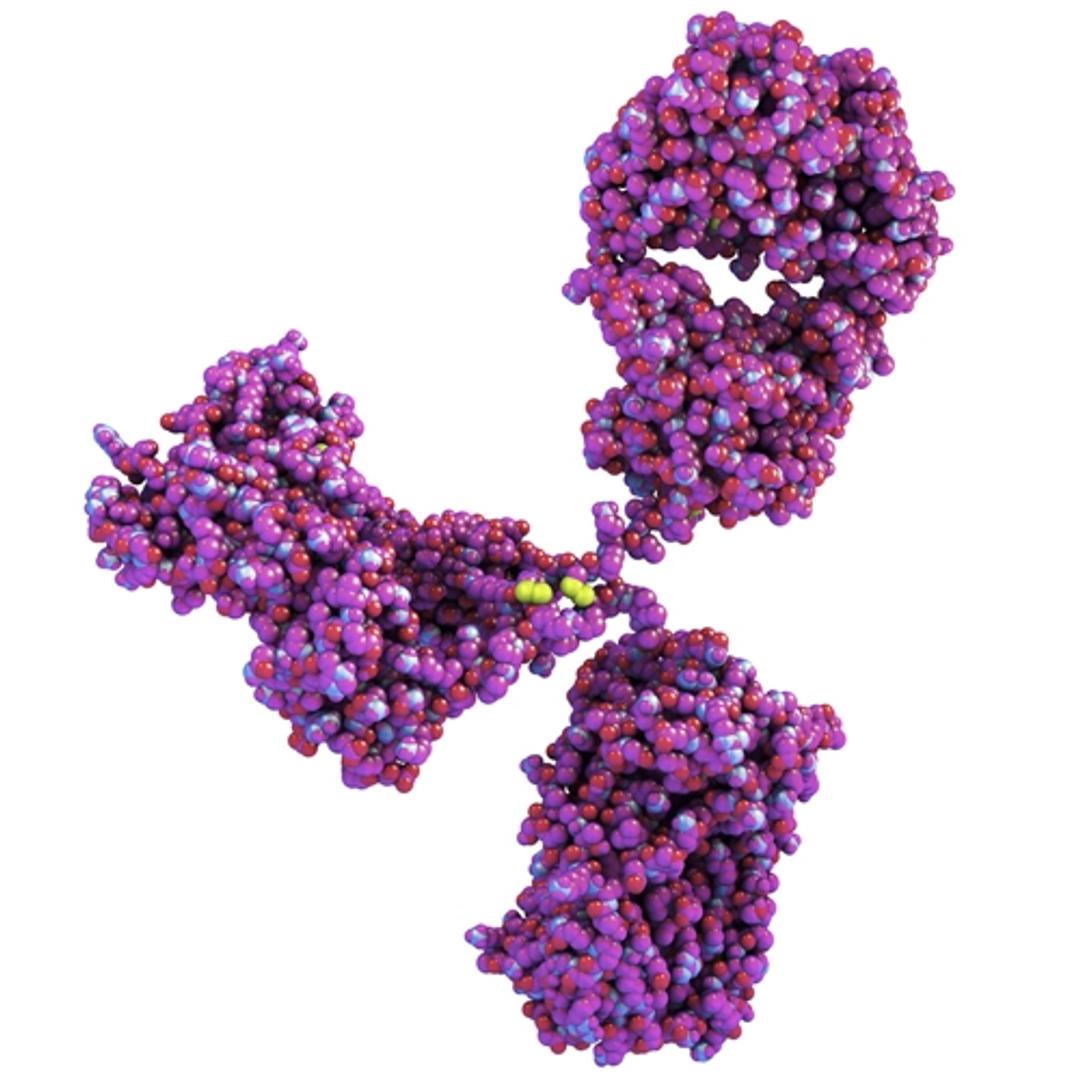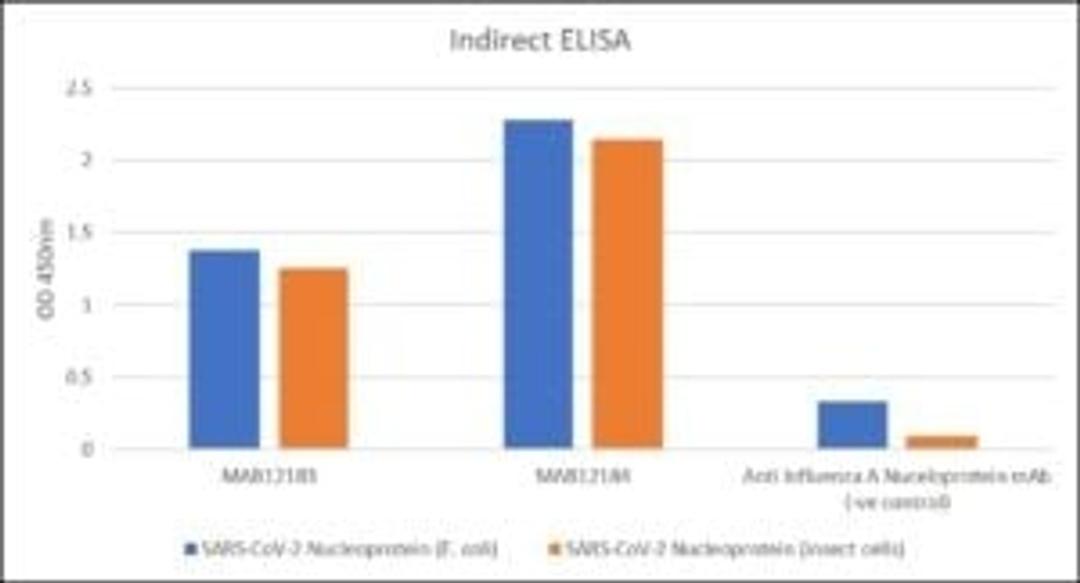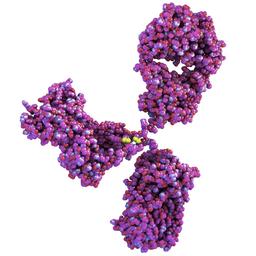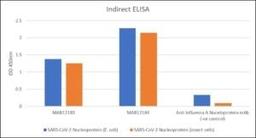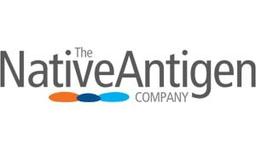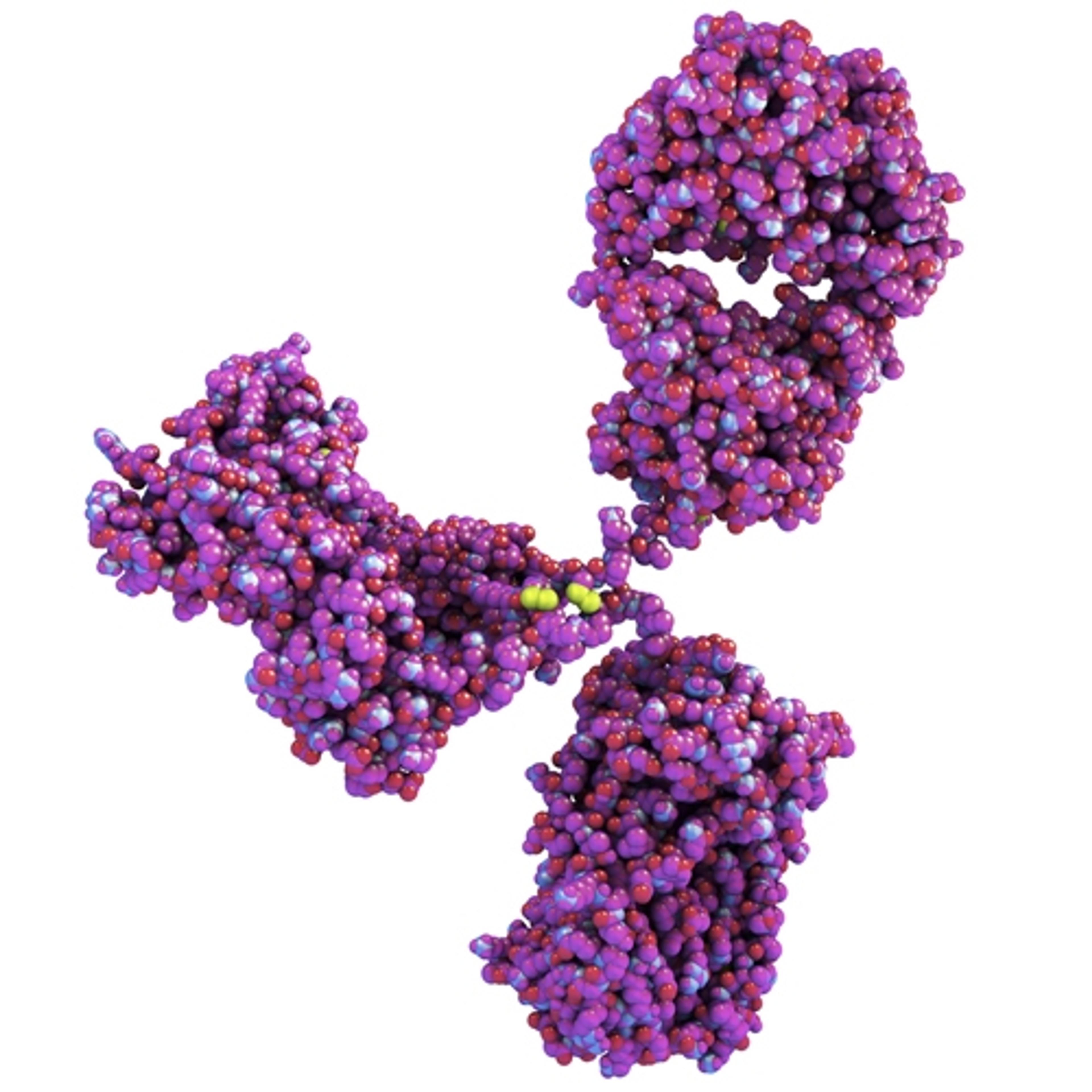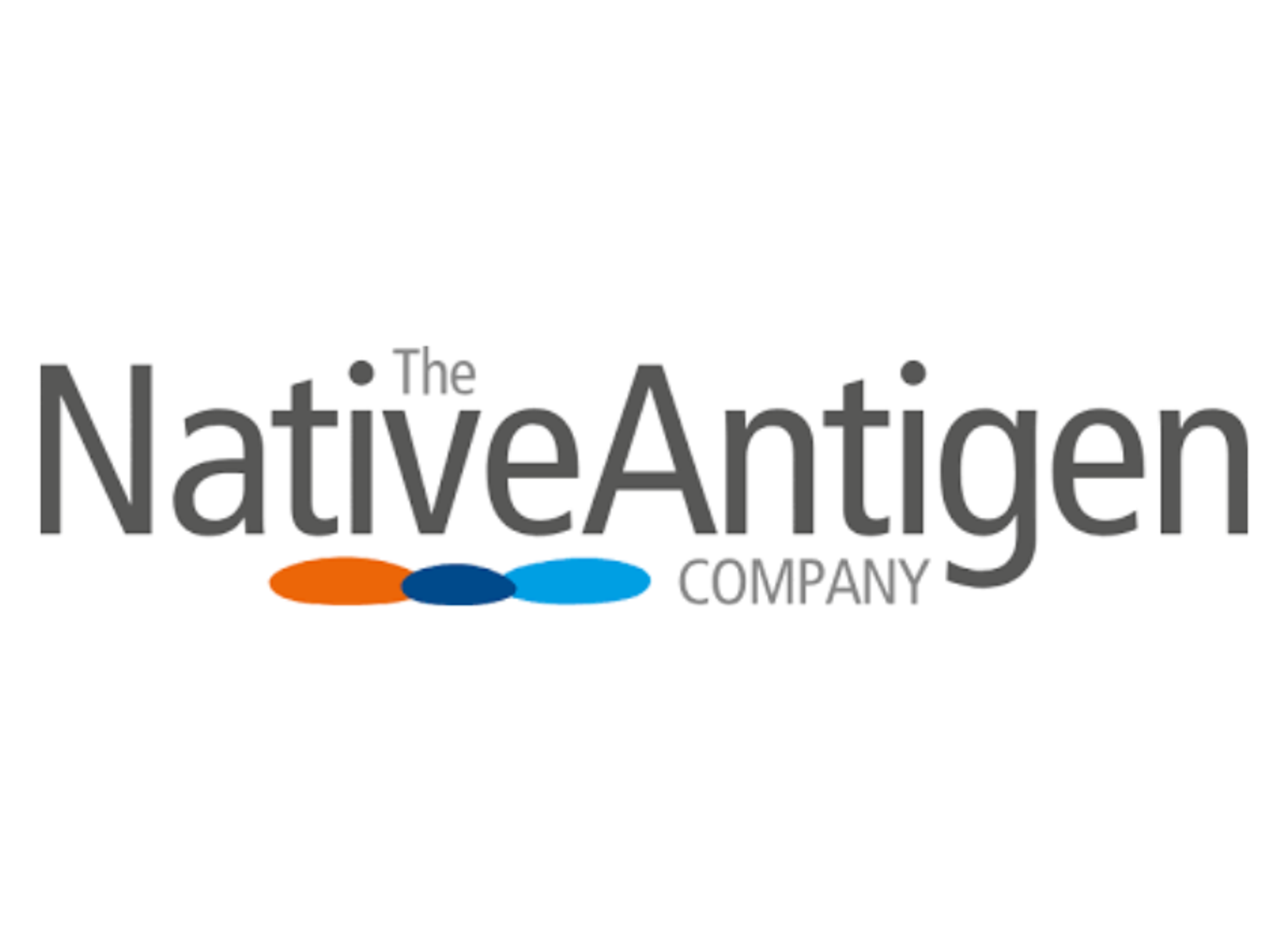Mouse monoclonal antibody specific for SARS Coronavirus nucleoprotein (3851)
Mouse monoclonal antibody specific for SARS Coronavirus nucleoprotein. Antibody is also reactive with the NP of SARS-CoV-2 (COVID-19) by ELISA.
SARS Coronavirus nucleoprotein antibody – clone 3851
SARS Coronavirus nucleoprotein antibody is specific for the nucleocapsid protein of Severe acute respiratory syndrome Coronavirus (SARS-CoV) and also recognises the NP of SARS-CoV-2 (COVID-19) by ELISA. SARS Coronavirus nucleoprotein antibody does not react with human Coronavirus 229E and OC43, feline FIP-1, FIP-2, canine Coronavirus TGEV or mouse hepatitis virus.
Severe acute respiratory syndrome (SARS) is a lower respiratory tract illness that was first reported in patients from the Guandong Province of China in November 2002. The causative agent, which was previously unknown, was isolated in 2003 and named as SARS coronavirus (SARS-CoV). The SARS coronavirus is an enveloped, single-stranded, positive RNA virus of the family Coronoviridae (NCBI) The virus is thought to have a zoonotic origin, with the horseshoe bat being the primary natural reservoir, but this has not been confirmed. Mammals, including the palm civet, may act as intermediate hosts.
In 2003, the SARS coronavirus spread rapidly and affected over 8,000 people in 26 countries. The rapid spread of SARS-CoV is thought to be due to person-to-person transmission of the virus via aerosol droplets or close contact with infected individuals. Since the end of the SARS epidemic, cases of SARS have only occurred in laboratory workers that have been accidently infected (WHO).
The symptoms of SARS infection are like influenza and include fever, malaise, muscle pain, headache, diarrhoea and shivering. Clinical symptoms may also include coughing and shortness of breath. Respiratory distress may rapidly develop in some patients, resulting in death. SARS disease has a high rate of mortality and resulted in 774 deaths during the first epidemic in 2003.
Currently, no licenced vaccine is available for the prevention of SARS infection. SARS continues to be of global health concern due to the rapid spread of the virus, the high mortality rate and the fears of a future SARS outbreak.
References
- NCBI: Severe Acute Respiratory Syndrome Coronovirus
- World Health Organization: SARS (Severe Acute Respiratory Syndrome)

